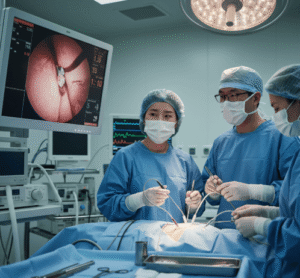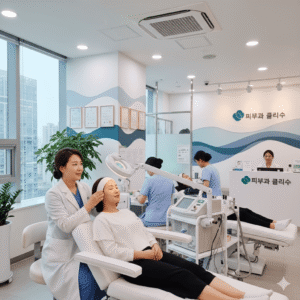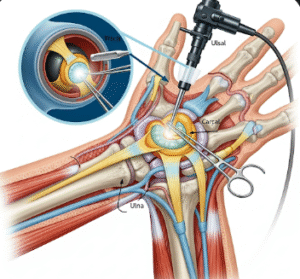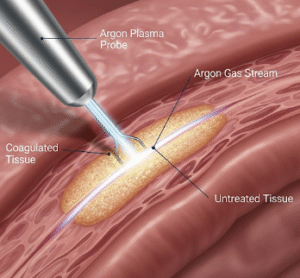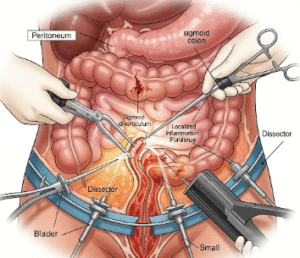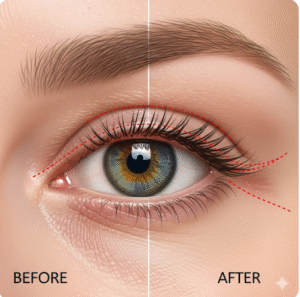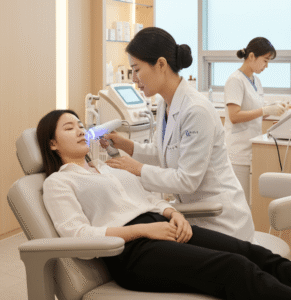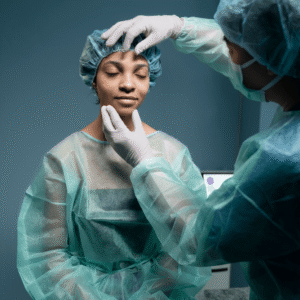Overview
Chronic sinusitis, also known as chronic rhinosinusitis (CRS), is a persistent inflammation of the sinuses and nasal passages lasting 12 weeks or longer despite treatment attempts. In Korea, advanced otolaryngology (ENT) centers provide accurate diagnosis, medical therapy, and surgical options to manage symptoms and prevent complications.
What is Chronic Sinusitis?
Chronic sinusitis occurs when the sinuses become inflamed and swollen, often due to infection, allergies, or structural issues in the nasal passages. Unlike acute sinusitis, symptoms persist over months and can significantly impact quality of life, sleep, and daily functioning.
Symptoms
- Nasal congestion or obstruction
- Thick nasal discharge (yellow or green)
- Facial pain or pressure, especially around the forehead, cheeks, and eyes
- Reduced sense of smell or taste
- Postnasal drip
- Cough, especially at night
- Fatigue and malaise
- Headache
Causes
- Infections: bacterial, viral, or fungal sinus infections
- Allergic rhinitis or other chronic allergies
- Nasal polyps causing blockage
- Deviated septum or other anatomical abnormalities
- Immune system disorders
- Environmental irritants such as pollution or smoke
Risk Factors
- History of repeated or severe sinus infections
- Allergies or asthma
- Smoking or exposure to secondhand smoke
- Structural nasal abnormalities (deviated septum, nasal polyps)
- Immune deficiencies or chronic illnesses
- Environmental exposure to dust, chemicals, or pollutants
Complications
- Recurrent acute sinus infections
- Spread of infection to nearby structures (eyes, brain in rare cases)
- Chronic headaches and facial pain
- Sleep disturbances and fatigue
- Reduced quality of life due to persistent symptoms
Prevention
- Proper management of allergies and asthma
- Avoid exposure to smoke, pollutants, and environmental irritants
- Maintain good nasal hygiene (saline nasal irrigation)
- Prompt treatment of acute sinus infections
- Regular follow-ups with an ENT specialist if prone to chronic sinus issues
Treatment Options in Korea
Treatment focuses on reducing inflammation, clearing sinus blockages, and preventing recurrence:
- Medications:
- Nasal corticosteroid sprays to reduce inflammation
- Antibiotics for bacterial infections
- Antihistamines for allergic causes
- Decongestants for temporary relief
- Procedures and surgeries:
- Endoscopic sinus surgery for patients with nasal polyps, chronic blockage, or anatomical issues
- Balloon sinuplasty to widen sinus openings and improve drainage
- Specialized hospitals in Korea:
- Samsung Medical Center ENT Department, Seoul National University Hospital, Asan Medical Center, Severance Hospital
- Multidisciplinary teams including ENT specialists, allergists, and immunologists
- Follow-up care:
- Regular nasal endoscopy or imaging to monitor sinus health
- Post-surgery care including nasal irrigation and medications
- Lifestyle and allergy management to prevent recurrence


